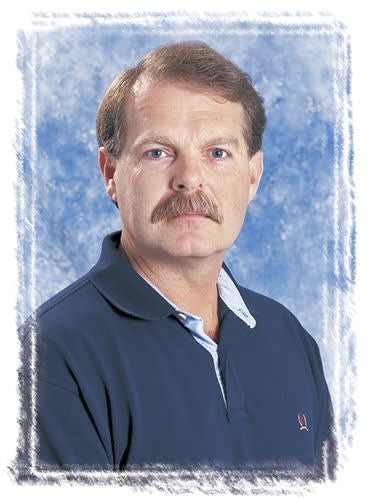I've worked for five different chiefs during my checkered police career. Of them, only one sticks out in my mind. Indeed, I have to think hard to even remember the rest of their names.
In 1981 on the San Diego Police Department, I was working a lonely beat in an area filled with canyons and dead radio zones. I had made a stop on a drunk driver, put it out over the car radio and requested a cover unit. Push came to shove and I was soon in a wrasslin' match with a slightly bigger fellow. I knew it was a dead-zone for my portable radio so didn't even try. I figured I would just have to hold on until the cavalry arrived.
After a short eternity struggling with the recalcitrant deuce, I heard the screech of tires and suddenly a black sedan stopped, inches from me. I distinctly heard the ratchety-grind of an automatic transmission being forced into park as the car stopped. Out leapt Chief Bill Kolender, suitcoat flapping as he laid hands on the fellow with me. An arm twist or two later and the Chief and I had him in cuffs.
Bill reached over and took my radio out of my holder and tried to put out that we had the suspect in custody but he could not be heard due to the dead zone. His face flushed and he let out a stream of expletives that I think even made my prisoner blush. Bill was never known to hold back when he felt strongly about something.
Soon thereafter, a slew of "Hi-Power" radios, as we called them, appeared for the more geographically remote beats, courtesy, I'm sure, of Bill's tirade when he got to the office the next day.
Yet, on many agencies, "Us vs. the Suits" is often rampant and just maybe it's for a good reason. Too many chief officers take off that uniform and never look back. They are out of touch with the equipment, needs, desires, dreams, goals and real-world problems of their own troops. They don't get dirty and bloody and sweat now and again in order to keep abreast of what the hell's going on. And it's an unforgivable mistake.
I watched a TV interview with the Commandant of the Marine Corps, conducted in the early '90s. He was asked what his job entailed and his reply has remained etched into my mind since. "I am a Marine Corps Rifleman," he said, formally. "Currently assigned as Commandant of the Marine Corps."
I was stunned at his humility and his ready-willingness to celebrate the importance of his primary duty - a rifleman. Not a general, or a sergeant, but a rifleman. I think there's a lesson there.
Most, if not all of us, looked upon Bill Kolender as a cop, who just happened to be the chief. His ability to talk shop with line officers and indeed, remember their names (a legendary trait of his) made us all proud to work with him. But mostly, he had a unique ability to make us feel he was one of us.
Don't let that ivory tower thing get in the way. Cops can be alienated in the blink of an eye, or in the space of a sound bite. If they feel a chief has lost track of his roots and leapt over that administrative wall it's rare the wall can be broken down later. I promise you, things will never be the same.
I had a young cop tell me an astounding story once. "I was in a shooting," he said. "The chief responded to the scene and came over to talk to me. When he saw I had given up my gun to my sergeant, he reached under his coat and pulled out his auto and handed it to me right then and there. He told me he didn't want any of his officers to be unarmed. Can you believe it?"
That chief showed he cared in a way that only two cops could understand.
Take the time to ride with the troops. Stand by and listen while a motorist screams at a patrol cop as they rant about being stopped just because they were black. ... and you'll know that wasn't the case at all. Smell the blood, suit up in a locker room again and, for crying out loud, carry a gun.
You're a cop, first.
And think about this: Are they going to remember your name?












